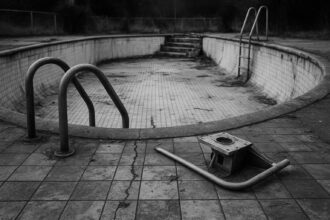Play advocates in England urge a nationwide ban on ‘no ball games’ signs, proposing a national Play Strategy to counter the decline in children’s outdoor activity and tackle rising screen time and health concerns.
Play experts in England are advocating for a nationwide ban on “no ball games” signs as part of a broader initiative to revive outdoor play among children, a crucial element in counteracting the alarming rise in screen time. According to a report from the Raising the Nation Play Commission, outdoor play has dramatically declined by 50% over the past generation, attributed to factors such as increasing traffic, concerns about crime, and a general environment where public spaces are perceived to be unwelcoming to young people. The report urges a cultural shift away from what it terms the “anti-play culture” that has quietly taken root across communities.
The proposed measures include instituting a national Play Strategy for England, which would not only ban these restrictive signs but also update planning policies to ensure that children’s voices are heard in the development of new public spaces. Further recommendations involve safeguarding playtime during school breaks, which has notably been shortened from an average of 23 minutes longer in the past, to now. Headteachers are encouraged to provide ample playtime, as evidenced by the successful policy at St Ambrose Catholic Academy in Liverpool, which guarantees an hour of quality play every day.
In London alone, over 7,000 signs limiting children’s playtime currently exist, creating barriers for more than half a million youths. The situation has spurred a campaign led by the charity London Sport, in collaboration with Saatchi & Saatchi, to remove these signs from public spaces and replace them with facilities that encourage active engagement, such as basketball hoops. By taking down these signs, advocates aim to not only promote physical activity but also reframe public perceptions around children’s play.
The inquiry led by Paul Lindley and Baroness Anne Longfield also highlights that one-third of children under nine lack convenient access to safe play areas, raising urgent questions about their social skills and overall health. The reduction in outdoor play access has ominous implications for children’s well-being, exacerbated by societal shifts towards heightened parental caution and a reliance on digital entertainment.
As schools face increasing pressure to adapt to these Changing dynamics, the government has stated it is developing frameworks to enhance children’s access to outdoor activities, including initiatives like the £15 million National Education Nature Park. Critics of the current system argue that the earlier 2008 play strategy, which allocated £235 million for playground improvements, was prematurely scrapped, leading to significantly diminished play opportunities.
Local community organisations, such as Blackpool Better Start, are actively working to transform underused parks to ensure safe, accessible spaces for children’s play, reflecting the necessity for families to have ownership over their community spaces. “It is so important for families to have safe spaces to play,” said Clare Law, the project director, who has seen the tangible benefits of revitalised local parks on family engagement and child development.
However, while the removal of “no ball games” signs is a positive step towards creating playful communities, experts warn that it must be part of a larger, multi-faceted approach to address the wider issues contributing to childhood obesity and mental health concerns. Overall, a concerted effort from both local authorities and the national government is essential to facilitate an environment where children can thrive through play.
 Reference Map:
Reference Map:
- Paragraph 1 – [1], [2]
- Paragraph 2 – [1], [3]
- Paragraph 3 – [2], [5]
- Paragraph 4 – [2], [4]
- Paragraph 5 – [1], [6]
- Paragraph 6 – [1], [7]
Source: Noah Wire Services
- https://www.bbc.com/news/articles/c39xegx41xko – Please view link – unable to able to access data
- https://www.ft.com/content/07310a3e-8649-4bc7-8ac9-3bf60407bd3c – UK ministers are under increasing pressure to address the decline in children’s outdoor playtime, which experts and MPs warn is detrimental to children’s social skills, learning, and health. The call centres around implementing a national play strategy in England, similar to those in Scotland and Wales where schools are legally obligated to provide play opportunities. Currently, nearly one-third of children under nine lack nearby access to safe play areas, and a substantial shift toward indoor and screen-based activities has been noted. A 2008 play strategy under the Labour government, which had promised £235 million to enhance playgrounds, was scrapped in 2010, leading to deteriorating play access. A new cross-party parliamentary group aims to revive national efforts, supported by an inquiry led by Baroness Anne Longfield and entrepreneur Paul Lindley. This inquiry recommends mandated school playtime and regulatory oversight by Ofsted. There is evidence of generational shifts in parenting, with growing risk aversion among today’s parents. The government claims to be supporting outdoor space improvements with initiatives like a £15 million National Education Nature Park. Advocates urge the restoration of play as a fundamental right to combat rising anxiety and declining well-being among children.
- https://www.theguardian.com/society/2025/mar/18/yes-ball-games-drive-to-take-down-signs-warning-against-play-begins-in-london – A campaign to remove thousands of ‘no ball games’ signs across London has been launched, aiming to encourage children to be more active. The initiative, led by the charity London Sport and supported by Saatchi & Saatchi, estimates that approximately 7,000 such signs across London’s housing estates deter half a million children from engaging in physical activity. The campaign began with replacing a ‘no ball games’ sign on the Mursell estate in Stockwell with a basketball hoop. The charity argues that these signs send the wrong message to children and young people, and the campaign seeks to drive policy change to remove barriers to active lives, starting with eliminating these signs.
- https://www.playengland.org.uk/newsblog/moreballgames-campaign-launched – Play England has launched the ‘More Ball Games’ campaign, aiming to challenge and remove outdated ‘No Ball Games’ signs that hinder children’s right to play. The campaign, in partnership with London Sport and Saatchi & Saatchi, highlights that approximately 7,000 such signs across London limit play opportunities for over 560,000 children. The initiative includes transforming restrictive signs into positive play spaces, such as converting a ‘No Ball Games’ sign into a functioning basketball hoop on the Mursell Estate in Lambeth. The campaign advocates for public spaces that welcome and encourage active play, vibrant communities, and healthier, happier childhoods.
- https://londonsport.org/our-events/moreballgames/ – London Sport, in partnership with Saatchi & Saatchi, has launched the ‘More Ball Games’ campaign to remove restrictive ‘No Ball Games’ signs across London and England. The campaign aims to ensure that children and young people have access to free spaces where they can play, move, and be active close to home. Statistics show that over half of young Londoners do not meet recommended activity levels, with lower-income communities disproportionately affected by restricted access to sport, play, and physical activity. The campaign calls on policymakers and decision-makers to take down these signs and reimagine public spaces to support active lifestyles.
- https://www.theguardian.com/commentisfree/2015/jul/02/no-ball-games-haringey-council-children-play-obesity – Haringey council in north London is reviewing the use of ‘no ball games’ signs on its estates to encourage children to play outside. The article discusses the broader issue of such signs and their impact on children’s outdoor play, highlighting that while removing these signs may help, it does not address the underlying causes of childhood obesity, which are multifaceted and not solely related to outdoor play restrictions.
- https://www.standard.co.uk/news/health/council-plans-to-tackle-obesity-by-removing-no-ball-games-signs-a3202471.html – Haringey council in London is removing ‘No Ball Games’ signs in a campaign to tackle rising childhood obesity rates. The initiative, supported by former Spurs captain Ledley King, aims to send a positive message about active lifestyles and is part of a broader effort to encourage children to play outside and engage in physical activity.













